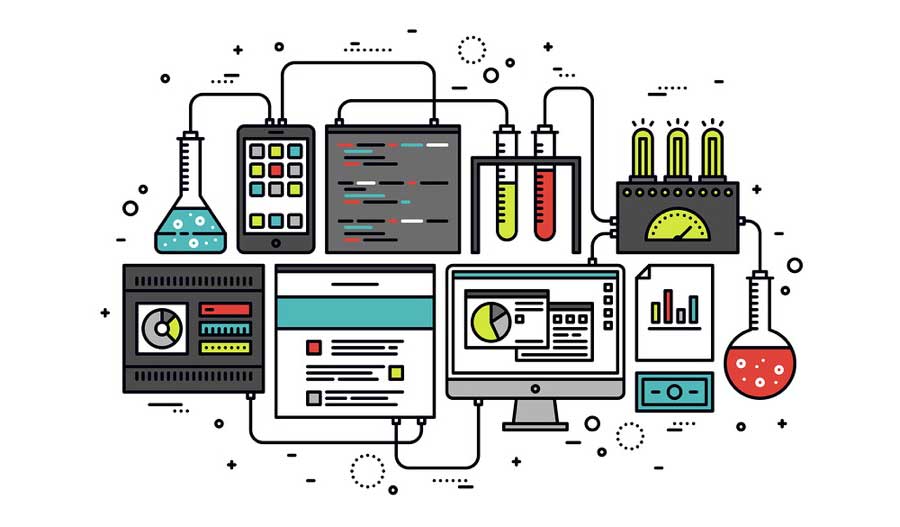The Essence, definition and concept of marketing automation
Every industry faces a number of challenges and tasks. One of the most important is to build lasting customer relationships based on reciprocal communication. In the time of slow economic growth customer acquisition is becoming an issue of ever increasing importance. The effective process of customer acquisition involves the ability to acquire new customers, to optimize customer acquisition costs and to encourage the customer to make a purchase.Universal access to the Internet, advancement of new technologies, expansion of mobile gadgets and continuously changing marketing models all combine to emphasise the need for integrated marketing automation systems in running effective promotion campaigns. This ever widening spectrum of possibilities was discovered 15 years ago by US marketers and led to the development of systems for monitoring the behaviour of e-mail recipients in the scope considerably larger than measuring simple e-mail click-through or open rates. This was how marketing automation systems originated. Marketing automation software tracks the behaviour of e-mail recipients on a given site. The information obtained allows for identifying recipients' needs and pinpointing the most interesting elements of the company offer from the point of view of prospects. Thanks to this information it is possible to tailor the marketing message to the needs of an individual prospect and, additionally, to increase the message impact by choosing the right time to send it.
“A marketing message should attract attention and be easily memorable. It should also be bald and original and at the same time natural and rational. The most effective messages are clear, simple and concise. The message should inform about product features and at the same time sound true and trustworthy. It should express confidence, respect the recipient and inspire positive sentiments. It mustn't be aggressive. As a result it is supposed to comply with moral and social norms of behaviour, public opinion and law.“
Today the Internet has become an integral part of consumer experience, the place where products and services are actively sought and directly bought. “Shopping decisions of as many as 90% of buyers are preceded by online research while 70% of buyers track each successive stage of the sales process through dedicated software or e-mails. Clearly, the Internet is today the central battle field where companies fight for profits.
A company's website is a major influence on brand personality, intensifying consumer experience by means of integrated media that use the synergy of words, image, colour, sound and movement. A company's website should be user-friendly, have a clear structure and present information and in a comprehensible and accessible way. The most effective websites understand their customers and know their needs. Content is presented in an intuitive way rather than reflecting an institution's organizational structure.
Expressed in simple terms, marketing automation is a technology that allows companies to streamline marketing processes, better organize marketing tasks, fully automate marketing strategies and precisely measure their effectiveness, leading to increased return on marketing investment (ROMI).
The goal of the marketing automation system is to automate repetitive marketing tasks. Company-generated content can be provided to prospects by a range of media including e-mail, social networks, specially designed landing pages or webinars. Messages reach prospects at an appropriate stage of the purchasing cycle.
Marketing automation capabilities include:
• maintaining databases of current and prospective customers and mailing lists,• monitoring and analysing customer behaviour in mobile applications and on given websites,
• segmentation of prospects by age, sex, place of living, interests, etc.,
• e-mail monitoring (measuring open rates),
• management of B2B visits — identifying companies visiting the website, automated management of marketing activities.
Marketing automation systems offer companies a wide range of possibilities. It is possible to reach out to prospects using multi-channel communication including e- mails, text messages, audio and video messages, and, finally, through social media or websites, which generate content in the most dynamic way. A typical marketing automation system offers a number of functionalities with reference to both monitoring and reacting to the behaviour of leads.
Marketing automation systems make it possible for marketers to send personalized, non-invasive messages at the right time. Marketing automation replaces mass distribution of messages with one-to-one communication without compromising the quality of the marketing process. Solutions provided by marketing automation can be also employed by sales teams. Sales people can access information about a prospect's needs and interests ahead of initiating direct contact by phone or in person. Information made available by marketing automation systems enables sales people to prepare for a conversation with a prospect.
Conclusions
Marketing automation embraces the whole spectrum of marketing channels and strategies ranging from e-mail marketing and telemarketing to the efforts that tap into the potential of social media and content marketing. Marketing automation platforms include systems for customer relationship management and sales lead management as well as other analytical platforms for monitoring and evaluation of marketing campaigns. As with any technology, marketing automation software can be exploited for dishonest marketing practices, e.g. spamming. However, contrary to spam messages, messages generated by marketing automation systems are based on the idea of a two-way communication and are consequently more personalised and beneficial for both sides of the communication process. Behavioural monitoring allows for constructing an offer that meets a prospective customer's real needs.
The assumptions of the marketing automation process modernise advertising campaigns run by companies, generating the return on investment that is significantly higher than that obtained with classic marketing tools. However, to achieve improved business results it is necessary to develop an appropriate strategy, to monitor a company's performance and be able to draw constructive conclusions that are in turn used for the development of the most advantageous modifications and new high- efficiency solutions. The implementation of a marketing automation system changes the operation model of the marketing department and transforms the marketer him/herself. For the capabilities of marketing automation including in particular the unique knowledge about customers represent a critical marketing value for any modern organization.







